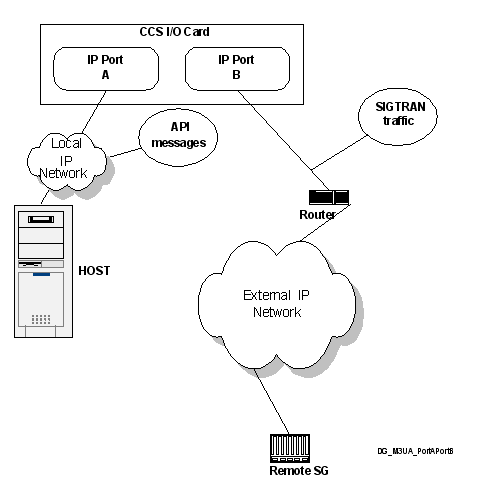
You are here: CSP Developer’s Guide: Common Channel Signaling > 15 M3UA Implementation in the CSP > Important Notes Regarding This Release
Important Notes Regarding This Release

Overview
This section provides important information specific to this release of the M3UA software.
A single ASP supports 450 calls per second. A redundant ASP supports 400 calls per second.
ISUP and SSCP/TCAP Over M3UA Supported
This release supports ISDN User Part (ISUP) and SCCP/TCAP over the M3UA protocol.
Application Servers Have Unique Network Appearance
Each Application Server in the system must have a unique network appearance. The network appearance can have the same parameters (protocol type and network identity) but must have a different number.
Signaling Gateways and Signaling Gateway Processes
Signaling Gateways can use up to two Signaling Gateway Processes. A Signaling Gateway Process cannot serve more than one Signaling Gateway.
Load Share and Broadcast Options Not Supported
The load share and broadcast options for the traffic mode are not supported in this release. The Application Server side works in override mode only. This means that all the Mobile Subscriber Unit traffic sent from an Application Server to a specific Signaling Gateway will be sent by the same Application Server Process, even if the Application Server has more than one Application Server Process configured.
M3UA is a licensable feature. For more information, refer to Configuring M3UA Software.
IPSP and Remote SG Not Supported
This release of M3UA software does not support IP Server Process and Remote Signaling Gateway applications.
Cantata recommends the following IP network configuration:
• Only one gateway address is available, and it is always the first gateway address to appear in the IP configuration address.
• The system can have up to two Application Server Processes.
• The Ethernet A port on the CCS I/O card is for host traffic. The host and CSP should be in the same subnet, and no gateway address should be assigned to this port.
• The Ethernet B port on the CCS I/O card is for M3UA traffic. Configure the gateway address on this port so that it can communicate with other networks.
Figure 15-2 Separate Host and M3UA Traffic
